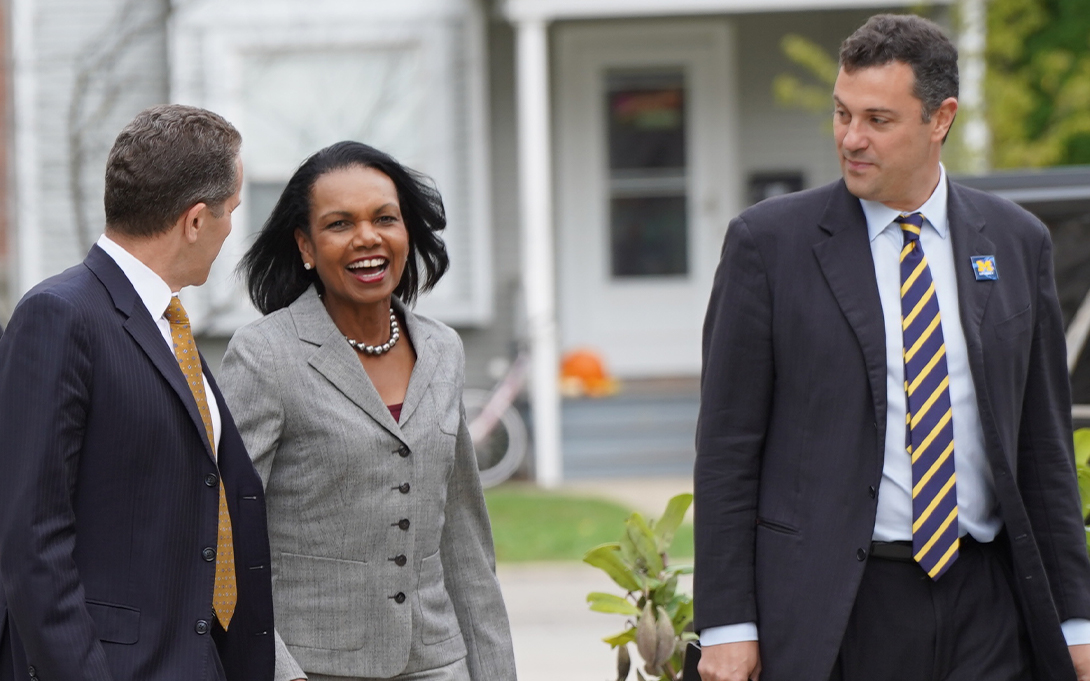
The Ford School’s new Weiser Diplomacy Center officially launched this fall with visits from an all-star lineup of leaders in foreign affairs.
A lecture by Stephen Biegun, U.S. special representative for North Korea, kicked off the series. In a packed Rackham Amphitheater Biegun, a U-M alum, addressed "International Diplomacy Challenges: North Korea." His talk was widely covered by media in the U.S. and in South Korea.
Stephen Biegun
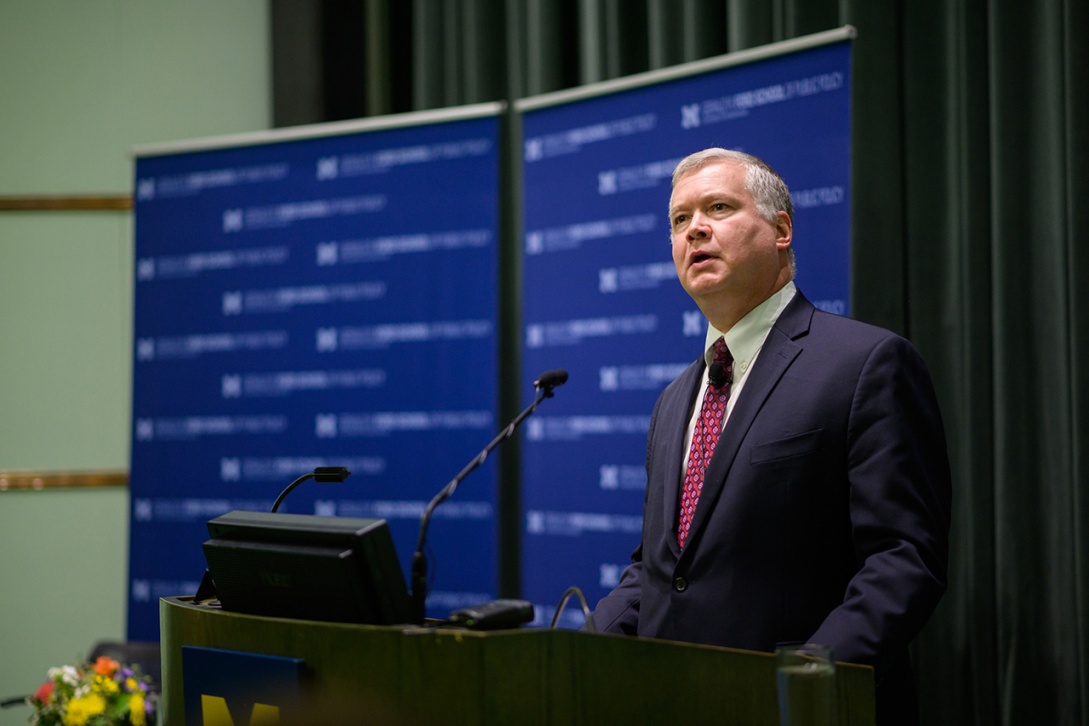
"The Ford School is at the forefront of many of the challenging issues facing our world today, and the Weiser Diplomacy Center will further our ability to tackle such issues," said Michael S. Barr, the Joan and Sanford Weill Dean of Public Policy. "Bringing Stephen Biegun to speak to students about North Korea negotiations is a perfect example of this."
Next up was a fascinating panel on “Diplomacy in a New Transatlantic Era,” featuring Stephen Hadley, former national security adviser; Daniel Fried, former assistant secretary of state; and Liz Schrayer, president & CEO of U.S. Global Leadership Coalition
Former U.N. Ambassador Samantha Power delivered a powerful talk connected with the publication of her memoirs, The Education of an Idealist. The event was the Ford School's annual Arthur Vandenberg lecture, and drew an enthusiastic crowd of well over 300 people.
Stephen Hadley, Daniel Fried, and Liz Schrayer
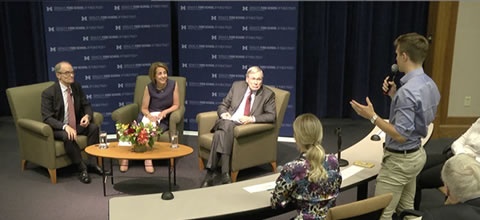
On October 4, the 66th U.S. Secretary of State Condoleezza Rice gave a public talk at Rackham Auditorium, gave a pep talk to the Michigan football team as honorary Homecoming captain, and taught a Master Class on democracy and America’s foreign policy identity. Attendees at the Master Class included dozens of Ford School and U-M students along with Ford School alumni in town for Homecoming.
Samantha Power
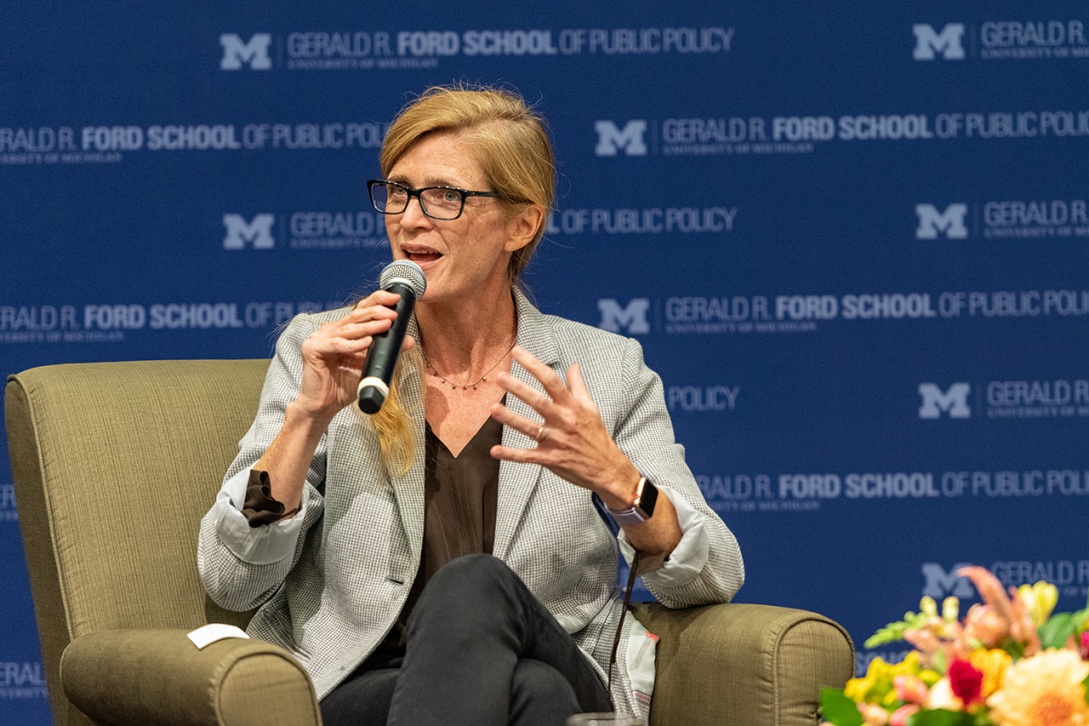
The next week, the series continued with a visit from the 67th U.S. Secretary of State Hillary Rodham Clinton. Secretary Clinton first spoke to group of 200 Ford School students, faculty, and staff in a closed-press session that was hosted by the school’s new leadership initiative. She then delivered wide-ranging remarks to a crowd of 1,100 at Rackham Auditorium on current issues related to U.S. foreign policy, diplomacy and development.
"Our fall speakers include a pantheon of foreign policy experts who have held leading roles over the past several U.S. administrations and in key international organizations," said John Ciorciari, director of Weiser Diplomacy Center. "Their engagement reflects the importance of the new Weiser Diplomacy Center and U-M's growing role as a hub for dialogue on world affairs."
The WDC Launch Series will conclude on November 21 with a visit from Ambassadors Gerald Feierstein, Deborah McCarthy, Ronald Neumann, and Patrick Theros. That talk will address highly-relevant issues around the U.S.-Iran relations and security in the Persian Gulf.
Each visitor is meeting with students, faculty, and alumni in a variety of settings while in Ann Arbor.
Video from most of the events is available here. View photos here.
Hillary Clinton
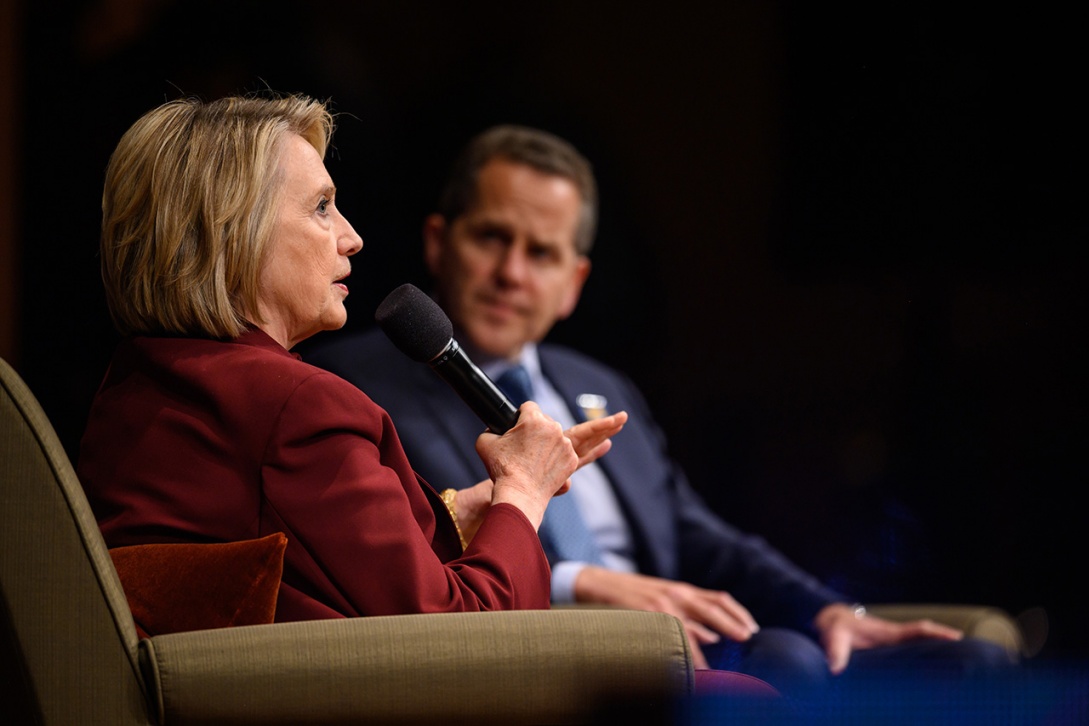
As part of the center’s opening, the Ford School welcomed its first cohort of Weiser Diplomacy Fellows. The fellowship is awarded to outstanding incoming graduate students who express deep interest in pursuing knowledge and practical policy skills related to diplomacy, national security, international economic development, and/or human rights. Fellows receive tuition support for two years of graduate study in international policy or international economic development. The first four fellows are Maggie Barnard, Edward Elliot, Marianna Smith, and Triana Yentzen Toro.
This fall, the center also will run an Environmental Diplomacy Simulation developed by Victoria Pebbles of the Great Lakes Commission.
The center was formed last year with a $10 million gift from U-M alumni Ron and Eileen Weiser.